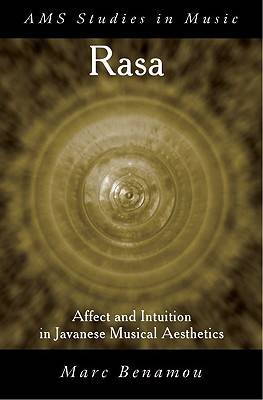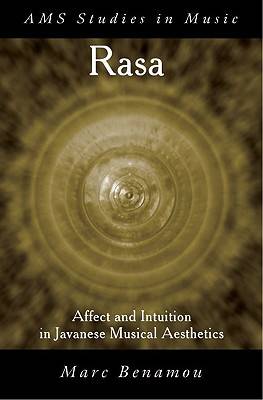
- Afhalen na 1 uur in een winkel met voorraad
- Gratis thuislevering in België vanaf € 30
- Ruim aanbod met 7 miljoen producten
- Afhalen na 1 uur in een winkel met voorraad
- Gratis thuislevering in België vanaf € 30
- Ruim aanbod met 7 miljoen producten
Zoeken
€ 102,45
+ 204 punten
Uitvoering
Omschrijving
The complex notion of "rasa," as understood by Javanese musicians, refers to a combination of various qualities, including: taste, feeling, affect, mood, sense, inner meaning, a faculty of knowing intuitively, and deep understanding. This leaves us with a number of questions: how is rasa expressed musically? Who or what has rasa, and what sorts of musical, psychological, perceptual, and sociological distinctions enter into this determination? How is the vocabulary of rasa structured, and what does this tell us about traditional Javanese music and aesthetics?
In this first book on the subject, Rasa provides an entry into Javanese music as it is conceived by the people who know the tradition best: the musicians themselves. In one of the most thorough explorations of local aesthetics to date, author Marc Benamou argues that musical meaning is above all connotative - hence, not only learned, but learnable. Following several years performing and researching Javanese music in the regional and national cultural center of Solo, Indonesia, Benamou untangles the many meanings of rasa as an aesthetic criterion in Javanese music, particularly in court and court-derived gamelan traditions. While acknowledging that certain universal psychological tendencies may inspire parallel interpretations of musical meaning, Rasa demonstrates just how culturally specific such accrued, shared meanings can be.
In this first book on the subject, Rasa provides an entry into Javanese music as it is conceived by the people who know the tradition best: the musicians themselves. In one of the most thorough explorations of local aesthetics to date, author Marc Benamou argues that musical meaning is above all connotative - hence, not only learned, but learnable. Following several years performing and researching Javanese music in the regional and national cultural center of Solo, Indonesia, Benamou untangles the many meanings of rasa as an aesthetic criterion in Javanese music, particularly in court and court-derived gamelan traditions. While acknowledging that certain universal psychological tendencies may inspire parallel interpretations of musical meaning, Rasa demonstrates just how culturally specific such accrued, shared meanings can be.
Specificaties
Betrokkenen
- Auteur(s):
- Uitgeverij:
Inhoud
- Aantal bladzijden:
- 344
- Taal:
- Engels
- Reeks:
Eigenschappen
- Productcode (EAN):
- 9780195189438
- Verschijningsdatum:
- 20/09/2010
- Uitvoering:
- Hardcover
- Formaat:
- Genaaid
- Afmetingen:
- 244 mm x 165 mm
- Gewicht:
- 632 g

Alleen bij Standaard Boekhandel
+ 204 punten op je klantenkaart van Standaard Boekhandel
Beoordelingen
We publiceren alleen reviews die voldoen aan de voorwaarden voor reviews. Bekijk onze voorwaarden voor reviews.











